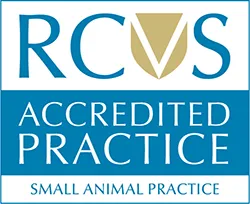As a responsible pet owner, it's up to you to look after your dog's health, and this should include regular worming.
Should I worm my dog?
All dogs are susceptible to worm infestations, and it’s up to you to stay on top of treatment.
Some types of worm infestations, such as heartworm and lungworm, can even prove lethal to dogs, with puppies in particular being at risk. In fact, if your dog has a worm infestation, they might even pass on diseases to you and your family.
So make regular worming part of your pet care routine from day one. Stay vigilant, and any potential issues will be resolved long before they become a problem.
How can I tell if my dog has worms?
Keep an eye out for these common signs of a worm infestation:
- Bloated abdomen
- Vomiting
- Diarrhoea
- Worms in excrement
However, dogs with worms don’t always show signs of illness. Often, only large-scale infections have visible symptoms, so you may not even be able to tell if your dog’s affected. This is one reason why regular treatment is one of your best defenses.
How to prevent worms in dogs
There are a number of precautions you can take to protect your dog from worms:
Clean up after your dog.
Discourage your dog from fouling in public places, such as parks and play areas, to reduce the risk of their spreading any infections they may already have. When out on walks, always carry plastic bags with you, so you can clean up after your dog should they need to go.
If all dog owners were to take action to limit the amount of dog waste in public places, we’d greatly reduce the risk of worms spreading in the first place.
Maintain a regular worming routine
Regular worming helps to minimise the amount of egg contamination in the environment. So if you want to protect your dog from the risks of worms, develop a regular worming routine, and stick to it at all costs.
Which worming treatment is right for me?
With so many worming products to choose from, it can be difficult to decide on an appropriate course of treatment for your dog. But as a general rule, you should always choose the treatment your vet recommends. They’ll know your dog’s medical history, so they’ll be able to advise on a solution that’s as safe as it’s effective.
The good news is that worms are relatively easy to eliminate, and your vet will be able to provide suitable preparations. If you suspect that your dog is suffering from a worm infestation, or if you’d like to know more about the various worming treatments available, get in touch today.








Pet Help Advice